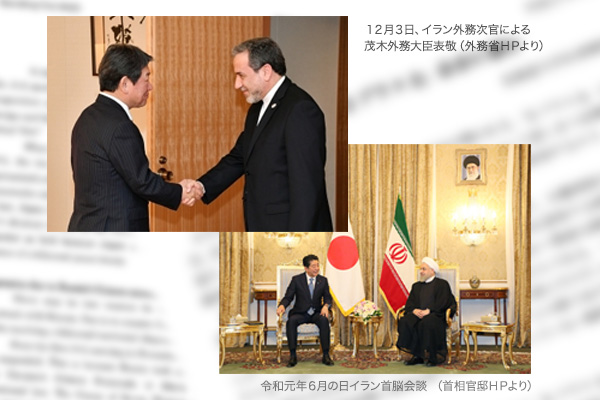Iranian President Hassan Rouhani is reportedly planning to visit Japan soon. His hope to visit Japan was conveyed to Prime Minister Shinzo Abe by Iran’s Deputy Foreign Minister Abbas Araghchi who arrived in Japan as the Iranian president’s special envoy and met with Abe on December 3. Japan has been an economic partner for Iran, the Iranian deputy foreign minister told Japan Broadcasting Corp., known as NHK. He also said that Iran has provided crude oil to Japan in exchange for technology supply from Japan and would like to maintain the same bilateral relationship.
Iran apparently hopes to emphasize its traditional friendship with Japan to break through U.S.-led sanctions.
It is dangerous for many politicians in Japan to innocently believe in the catch phrase of “traditional friendship.”
Stern U.S. and European eyes
How does the United States perceive Iran? President Donald Trump in his address at the United Nations General Assembly on September 24 said:
“One of the greatest security threats facing peace-loving nations today is the repressive regime in Iran. The regime’s record of death and destruction is well known to us all. Not only is Iran the world’s number one state sponsor of terrorism, but Iran’s leaders are fueling the tragic wars in both Syria and Yemen… Iran’s citizens deserve a government that cares about reducing poverty, ending corruption, and increasing jobs — not stealing their money to fund a massacre abroad and at home.”
On December 6, Brian Hook, U.S. special representative for Iran at the State Department, told a press conference that more than 1,000 died as the Iranian government violently repressed protests triggered by gasoline price hikes since mid-November. A ship with advanced Iranian weapons and missile parts aboard was seized on its way to Yemen on November 25, he also said, demonstrating the Iranian regime that is “stealing [citizens’] money to fund a massacre abroad and at home.”
Such perception of Iran is not limited to the U.S. After the U.S. immediately alleged Iran to have attacked key Saudi oil facilities with drones and cruise missiles on September 14 based on various evidence, Britain, France and Germany issued a joint statement on September 23 saying that Iran was clearly responsible for the attacks, with no other reasonable explanation made available.
Last January, the European Union launched its own sanctions on Iran, contending that Tehran sent assassin teams to Europe to kill exiled Iranian democracy activists.
Japan has done nothing
Few Japanese politicians may know such facts. It is inexcusable for Japanese politicians to ignore the fact that Iran has cooperated with North Korea to develop nuclear missiles. Japan should basically recognize Iran as a terrorist country.
Hook warned that if Iran attacks Saudi oil facilities again, a big war would break out. The U.S. will not ease sanctions on Iran under the Trump administration. Under growing pressure, the Iranian leadership could choose to launch an external war to divert citizens from their discontent. Nevertheless, Japan has loosely increased its rate of dependence on Middle Eastern crude oil to nearly 90%. At the National Diet, none has recently discussed Iran or possible disruptions to oil supply from the Middle East. Japanese politicians’ “do nothing” practice is terrible.
Yoichi Shimada is a Planning Committee member, Japan Institute for National Fundamentals, and a professor at Fukui Prefectural University. He follows U.S. diplomacy and politics.


